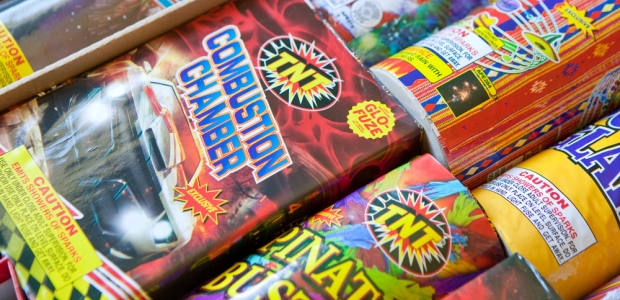
Fireworks Users Reminded of Safeguards
The Consumer Product Safety Commission's staff has reports of a total of 121 fireworks-related deaths between 2003 and 2018.
Ahead of the July Fourth holiday, when use of fireworks and the injuries associated with them peak, authorities (including the National Safety Council) are again issuing reminders to use them safely. The U.S. Consumer Product Safety Commission on June 26 released its report on fireworks-related deaths and injuries during 2018, and that report said 62 percent of that year's estimated annual fireworks-related injuries treated in emergency departments had occurred between June 22, 2018 and July 22, 2018.
The commission's staff received reports of five non-occupational fireworks-related deaths during 2018. All of them were associated with reloadable aerial devices, and all five victims died from direct impacts of fireworks. Reporting of fireworks-related deaths for 2018 is not complete, and the number of deaths in 2018 should be considered a minimum, the report says.
The CPSC staff has reports of a total of 121 fireworks-related deaths between 2003 and 2018, the agency reported.
The report indicates fireworks were involved in an estimated 9,100 injuries treated in U.S. hospital emergency departments during calendar year 2018. Children younger than 15 accounted for 36 percent of the estimated injuries. Similar to 2017, nearly half of the estimated emergency department-treated, fireworks-related injuries were to individuals younger than 20.
The parts of the body most often injured were hands and fingers (an estimated 28 percent); legs (an estimated 24 percent); eyes (an estimated 19 percent); head, face, and ears (an estimated 15 percent); and arms (an estimated 4 percent). Forty-four percent of the emergency department-treated injuries were burns, with burns being the most common type of injury to hands, fingers, and arms.
CPSC's tips for celebrating safely include these:
- Make sure consumer fireworks are legal in your area before buying or using them.
- Never use or make professional-grade fireworks.
- Do not buy or use fireworks that are packaged in brown paper; this is often a sign that the fireworks were made for professional displays and are not for consumer use.
- Never allow young children to play with or ignite fireworks, including sparklers. Sparklers burn at temperatures of about 2,000 degrees Fahrenheit. This is hot enough to melt some metals.
- Never place any part of your body directly over a fireworks device when lighting the fuse. Move to a safe distance immediately after lighting fireworks.
- Never point or throw fireworks at another person or occupied area.
- Light fireworks one at a time, then move away from them quickly.
- Keep a bucket of water or a garden hose handy, in case of fire or other mishap.
- Never try to relight or handle malfunctioning fireworks. Soak them with water and throw them away.
- After fireworks complete their burning, douse the spent device with plenty of water from a bucket or hose before discarding the device, to prevent a trash fire.
Michigan's Fireworks Safety Act of 2011 was amended in December 2018 and gives local government entities – villages, townships, and cities – the right to restrict the days and times for their residents to use consumer fireworks by enacting a local ordinance. Even if a local government chooses to restrict fireworks by passing a local ordinance, state law requires that fireworks must be allowed on these days, after 11 a.m.:
- Dec. 31 until 1 a.m. on January 1
- The Saturday and Sunday before Memorial Day, until 11:45 p.m.
- June 29 to July 4, until 11:45 p.m.
- July 5, if it falls on a Friday or Saturday, until 11:45 p.m.
- The Saturday and Sunday before Labor Day, until 11:45 p.m.
"Local government officials who assume that their municipality is simply following state law by not passing a fireworks ordinance may be inadvertently putting zero restrictions on fireworks usage in their community. This may not be what they intended, but it is what the state law puts forth," said State Fire Marshal Kevin Sehlmeyer. "If no action is taken at the local government level, state law allows for fireworks to be used all year long. Simply put, if there is no local ordinance restricting fireworks, then there are no local fireworks restrictions in your municipality."
He emphasized the importance of knowing the rules because the amended state law also stipulates that violations of a local ordinance can result in a $1,000 civil fine. "If you do plan to shoot your own fireworks, remember these are explosives and that if used incorrectly, can cause irreparable injury and harm," Sehlmeyer added. "Take every safety precaution, especially with the more powerful consumer-grade devices such as firecrackers, bottle rockets and Roman candles, to avoid tragedy."